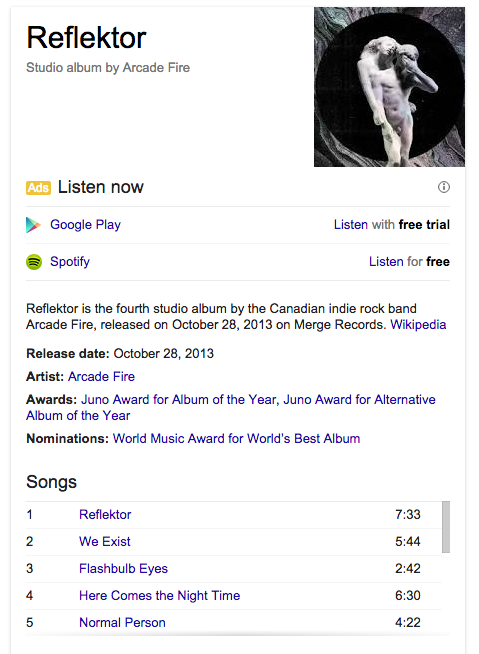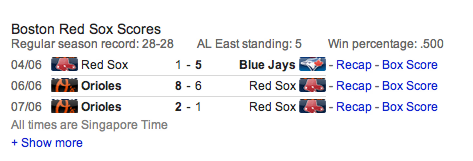Rich Search Results
Google initially started as an intermediary. You submitted a search and it suggested the best sources of information: Webpages sorted by relevance according to its PageRank algorithm. After trillions of searches, patterns of information requests emerged. Weather, Sports Scores, Biographic information, travel information, food recipes, etc…
A solid user experience reduces friction when presenting a solution for the end-user. It seems natural that Google would reduce the amount of clicking and reading you need to perform to find the exact information you are looking for. Google realized that its users weren’t necessarily looking for webpages to do more of their own research, but that they wanted immediate answers. I wrote about this Search UX a few years ago in a post about “intent driven design”.
Specificity
With specific searches about quantifiable, specific, or consistent information, we are able to present the user a solid information result without requiring them to qualify the information themselves (which requires additional effort).
What’s under the hood?
So how is Google doing all of this? How do they know what I’m looking for and how do they surface the most relevant data to me?
The answer, is a combination of linquistic analysis and mapping of common data into standards refered to as the Semantic Web.
The Semantic Web is built upon a foundation of standard data formats described by something called the Resource Description Framework (RDF). Basically, its aim is to describe the common data models that we want to interact with regularly.
Unfortunately, RDF was complex and didn’t gain mass adoption. Google sought a simpler standard that it could use to improve its search results. In 2011, Google, Yahoo and Bing announced Schema.org, an initiative to standardize data markup on webpages.
Schema.org uses a new standard for structured data markup called Microdata which derives much of its design from RDF and Microformats.
Adoption must be improving rapidly, as I’ve personally witnessed an influx of Rich Snippets powered by Microdata in my search results. I’ve attempted to catalouge them below. If you want to add an entry, feel free to submit a Pull Request on Github.










